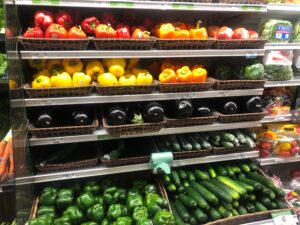
President’ Trump’s administration is working to trim the cost of food assistance programs. Low-income families and many students are in jeopardy of losing access to free lunches and government aid if the administration is successful following through on its proposal.
The objective is to limit the number of people receiving federal food stamps and free meals nationwide. An immediate point of concern from the public is children attending institutions losing assistance while away or at home.
“The concern is that there will be kids lost in this transition,” SNAP spokeswoman Diane Pratt-Heavner told USA Today earlier this week.
The revisions would create a narrow policy that ensures eligibility is extended only to households that meet satisfactory requirements, she added.
“I would be struggling if I were to lose this assistance,” Florida A&M University freshman Diane Gaines said. “My income is low, and I automatically qualify for SNAP through federal work study.”
Gaines has been receiving benefits since August and will have to reapply in a few months. She said it has been difficult for a few of her friends to get approved due to restrictions.
Other students have not been fortunate enough to receive federal assistance. Students around FAMU’s campus attend food drives and fried chicken Wednesdays in the café as a solution.
“I have applied for food stamps twice this year and have been denied on both attempts,” sophomore Lisa Simmons said. “My parents have been providing me with groceries until I find a job.”
Simmons said students are already not receiving enough assistance and are now in jeopardy of losing that benefit completely. She said her roommate had once been approved for monthly benefits for as low as $16.
According to the U.S. Department of Agriculture website, the amount of SNAP benefits you can get is based on the U.S. Department of Agriculture’s Thrifty Food Plan, which is an estimate of how much it costs to buy food to prepare nutritious, low-cost meals for your household.
“Applying for food stamps has only become more difficult,” FAMU transfer student Michael Brown said. “I work a part-time job and with the number of hours I work a week I can only receive less than $100.”
Brown said if he were able to receive the full benefit amount, he would have access to more groceries and he would spend more time cooking his meals. Brown has practiced meal prepping since he depends on a tight budget.